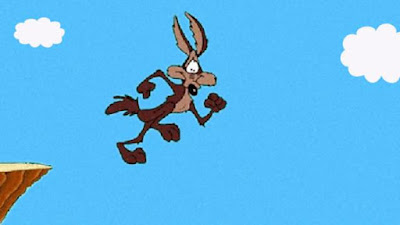Back in 2011, author Kathryn Schulz did a phenomenal TED Talk called "On Being Wrong." She looks at how easy it is to slip into error, and how hard it is not only to correct it, but (often) even to recognize that it's happened. At the end, she urges us to try to find our way out of the "tiny, terrified space of rightness" that virtually all of us live in.
Unfortunately, that's one thing that she herself gets wrong. Because for a lot of people, their belief in their rightness about everything isn't terrified; it's proudly, often belligerently, defiant.
I'm thinking of one person in particular, here, who regularly posts stuff on social media that is objectively wrong -- I mean, hard evidence, no question about it -- and does so in a combative way that comes across as, "I dare you to contradict me." I've thus far refrained from saying anything. One of my faults is that I'm a conflict avoider, but I also try to be cognizant of the cost/benefit ratio. Maybe I'm misjudging, but I think the likelihood of my eliciting a "Holy smoke, I was wrong" -- about anything -- is as close to zero as you could get.
Now, allow me to say up front that I'm not trying to imply here that I'm right about everything, nor that I don't come across as cocky or snarky at times. Kathryn Schulz's contention (and I think she's spot-on about this one) is that we all fall into the much-too-comfortable trap of believing that our view of the world perfectly reflects reality. One of the most startling bullseyes Schulz makes in her talk is about how it feels to be wrong:
So why do we get stuck in this feeling of being right? One reason, actually, has to do with the feeling of being wrong. So let me ask you guys something... How does it feel -- emotionally -- how does it feel to be wrong? Dreadful. Thumbs down. Embarrassing... Thank you, these are great answers, but they're answers to a different question. You guys are answering the question: How does it feel to realize you're wrong? Realizing you're wrong can feel like all of that and a lot of other things, right? I mean, it can be devastating, it can be revelatory, it can actually be quite funny... But just being wrong doesn't feel like anything.
I'll give you an analogy. Do you remember that Looney Tunes cartoon where there's this pathetic coyote who's always chasing and never catching a roadrunner? In pretty much every episode of this cartoon, there's a moment where the coyote is chasing the roadrunner and the roadrunner runs off a cliff, which is fine -- he's a bird, he can fly. But the thing is, the coyote runs off the cliff right after him. And what's funny -- at least if you're six years old -- is that the coyote's totally fine too. He just keeps running -- right up until the moment that he looks down and realizes that he's in mid-air. That's when he falls. When we're wrong about something -- not when we realize it, but before that -- we're like that coyote after he's gone off the cliff and before he looks down. You know, we're already wrong, we're already in trouble, but we feel like we're on solid ground. So I should actually correct something I said a moment ago. It does feel like something to be wrong; it feels like being right.
This attachment to our own rightness keeps us from preventing mistakes when we absolutely need to, and causes us to treat each other terribly. But to me, what's most baffling and most tragic about this is that it misses the whole point of being human. It's like we want to imagine that our minds are these perfectly translucent windows, and we just gaze out of them and describe the world as it unfolds. And we want everybody else to gaze out of the same window and see the exact same thing. That is not true, and if it were, life would be incredibly boring. The miracle of your mind isn't that you can see the world as it is, it's that you can see the world as it isn't. We can remember the past, and we can think about the future, and we can imagine what it's like to be some other person in some other place. And we all do this a little differently... And yeah, it is also why we get things wrong.
Twelve hundred years before Descartes said his famous thing about "I think therefore I am," this guy, St. Augustine, sat down and wrote "Fallor ergo sum" -- "I err, therefore I am." Augustine understood that our capacity to screw up, it's not some kind of embarrassing defect in the human system, something we can eradicate or overcome. It's totally fundamental to who we are. Because, unlike God, we don't really know what's going on out there. And unlike all of the other animals, we are obsessed with trying to figure it out. To me, this obsession is the source and root of all of our productivity and creativity.
**************************************


No comments:
Post a Comment